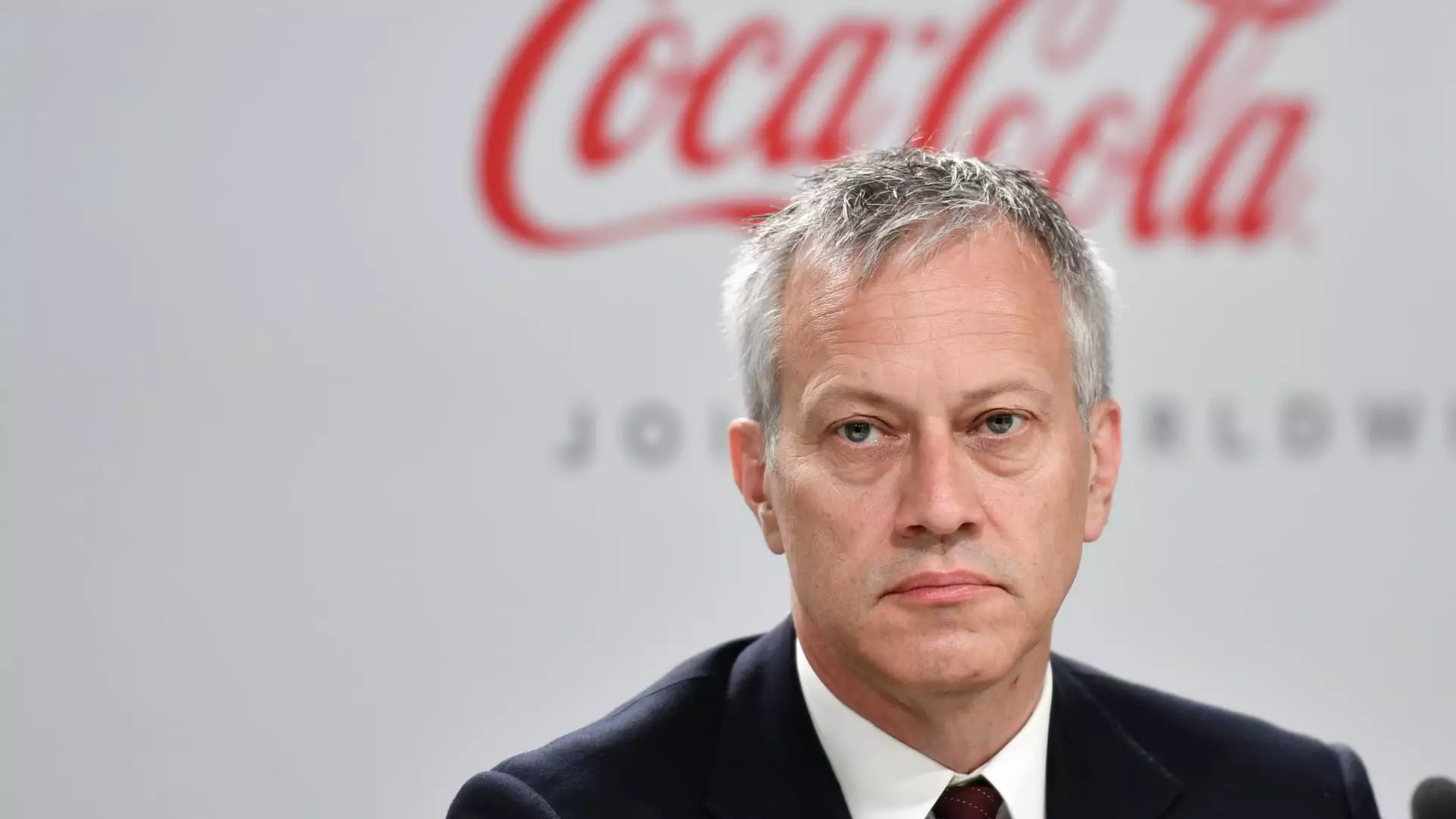The interconnectedness of the food and beverage industries often becomes a focal point for analysis, particularly in times of crisis. Recently, Coca-Cola’s CEO, James Quincey, addressed concerns surrounding an E. coli outbreak linked to McDonald’s Quarter Pounder burgers. Despite media reports indicating significant health risks, Quincey expressed confidence that the incident would not adversely affect Coca-Cola’s sales. This raises important questions about consumer behavior, brand resilience, and corporate partnerships during health crises.
The Centers for Disease Control and Prevention (CDC) reported an unsettling E. coli outbreak across ten states, correlating 49 cases—one of which resulted in a fatality—to the consumption of Quarter Pounder burgers. The investigation pointed to two specific ingredients: fresh beef patties and slivered onions. While cooking does eliminate the bacteria, the incident nonetheless poses challenges for both McDonald’s and Coca-Cola, given their long-standing commercial relationship.
Coca-Cola has enjoyed a mutually beneficial partnership with McDonald’s for nearly seventy years. The soft drink giant’s involvement extends beyond mere product supply; it actively contributes to marketing initiatives aimed at enhancing McDonald’s menu offerings, such as the recent $5 value meal deal that made use of soft drinks. This symbiotic relationship underscores the precarious balance businesses maintain during public health emergencies.
Quincey’s assertion that the outbreak will have a minimal impact on Coca-Cola’s sales reflects not only optimism but also a strategic understanding of consumer behavior. The immediate response from McDonald’s—including the temporary unavailability of Quarter Pounders in select areas—illustrates the fast-food giant’s commitment to consumer safety and brand integrity. Such rapid actions can aid in restoring consumer trust, helping mitigate any reputational damage.
However, there’s a broader context to consider. Alongside reports of the outbreak, consumer spending in restaurants has slowed, affecting both McDonald’s and Coca-Cola. Discount strategies have emerged as a coping mechanism, aiming to lure back customers amidst an economic backdrop where value for money is paramount. As consumers become more discerning, the question arises: how resilient are iconic brands in maintaining sales and trust when faced with potential health hazards?
Coca-Cola’s CEO emphasized the beverage company’s role as a supportive partner to McDonald’s during this health scare. Their collaborative approach is vital, not just for resolving the current crisis but also for reinforcing brand loyalty. Quincey’s statement hinted at a deeper strategy: enhancing collaborative marketing to mitigate the fallout from the outbreak while supporting McDonald’s operations. This responsiveness may bolster Coca-Cola’s brand image as a reliable partner during challenging times.
Although the immediate ramifications for Coca-Cola appear limited, there is room for caution. With shares dropping over 2% following the earnings report, even strong financial results cannot completely shield corporations from market perception influenced by negative health news. Investors often wield a microscope over potential crises, examining how companies navigate them.
As the fallout from the E. coli outbreak continues to unfold, both Coca-Cola and McDonald’s must navigate the dual challenge of safeguarding consumer trust and maintaining strong sales figures. McDonald’s has acted swiftly to address the immediate concerns, yet the lingering effects on consumer sentiment may shadow their future sales. Correspondingly, Coca-Cola’s strategy of marketing synergy could either fortify their mutual relationship or expose weaknesses if consumer habits shift dramatically as a result of this incident.
While Quincey exudes confidence that Coca-Cola will weather this storm, the evolving landscape of public health and consumer sentiment necessitates vigilance and adaptability. It remains to be seen whether their partnership can withstand external pressures, but one thing is certain: the interconnected fates of Coca-Cola and McDonald’s serve as a potent reminder of the complexities of modern consumer markets. As both companies strategize for recovery, their actions will ultimately shape the foundation for future resilience against similar crises.


Leave a Reply